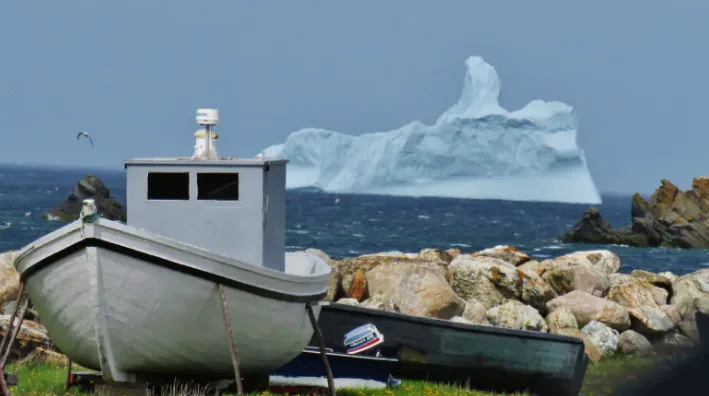
NL's beautiful icebergs are a 'bad sign', officials say
The federal minister of environment and climate change is sounding the alarm on how climate change could impact Newfoundland and Labrador.
"I know everyone's looking at the icebergs that you can see off the coast — that may be nice, may be a good tourist attraction, but it's also very dangerous," said Catherine McKenna, who was in St. John's on Thursday.
"And we will see more of that, more multi-year ice that is separating and coming south. That's an issue for folks who are out on the waters."
McKenna was joined by St. John's Mayor Danny Breen, after the two participated in a roundtable discussion about Canada's Changing Climate Report.
"Mayors don't have the luxury of pretending climate changes aren't having a serious impact right now because they are the ones who need to be acting," McKenna said.
McKenna said the report flags several issues specifically that relate to a province like N.L., including rising sea levels and extreme weather.
"Last year Newfoundland had the most powerful storm in the whole world on a particular day … which meant that there were power outages, there was impact with debris flying and storm surges," McKenna said, referencing the November 2018 storm.
"That's something that we're going to see more and more often — once-in-100-year storms … happening often every 10 or even five years."
McKenna said warming water temperatures pose a challenge for people in this province, too.
"As you see acidification of the oceans … that's going to have an impact on fish and other marine mammals. And we don't even know what ways. It will also mean more invasive species, potentially," she said.
"So that obviously is a concern because the fisheries are so important."
VIDEO: REDUCE EMISSIONS TO SAVE CANADA'S NORTH
She referenced the emergency funding for fish harvesters in communities across Atlantic Canada and Quebec that was announced on Wednesday.
Specifically, $5 million has been set aside to help those who have faced delays in the start of the fishing season because of ice conditions, if certain eligibility criteria is met.
"Clearly we need to be taking action to tackle climate change," she said.
"And that's the point of the conversation. It's about how do we build more resilient cities and towns and protect our people and make the investments that are really critically important."
McKenna walked Signal Hill while in the capital city. She will be on Newfoundland's west coast on Friday for an announcement related to Gros Morne National Park.
This article was written for the CBC.











